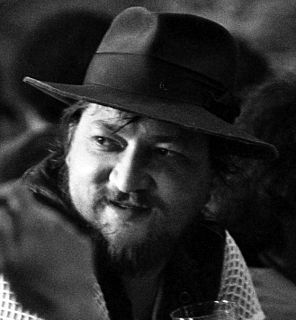A Quote by David Brin
Beware of self-indulgence. The romance surrounding the writing profession carries several myths: that one must suffer in order to be creative; that one must be cantankerous and objectionable in order to be bright; that ego is paramount over skill; that one can rise to a level from which one can tell the reader to go to hell. These myths, if believed, can ruin you. If you believe you can make a living as a writer, you already have enough ego.
Related Quotes
The word 'ego' is very important. The ego is an important element of being human, and of being creative. We need that ego in order to give us a confidence of doing what we're doing. Ego pushes us into the creative world in order to create for something more. I think that a great company of actors, they all have egos, very strong egos, but they're all prepared to share together in order to achieve something even better than that.
In Buddhist ideology, the conventional self is that which is constructed in a way by the use of the pronoun, and when you realize there is no absolute ego there, no disconnected one, self, or ego, then that actually strengthens your conventional ego. It does so in the sense that then you realize it's a construction, and you can strengthen it in order to help others, or do whatever you're trying to do, it's not like you no longer know who you are. Then you can organize your behavior by using your ego, as it's now the pronoun.
Myths, as compared with folk tales, are usually in a special category of seriousness: they are believed to have "really happened,"or to have some exceptional significance in explaining certain features of life, such as ritual. Again, whereas folk tales simply interchange motifs and develop variants, myths show an odd tendency to stick together and build up bigger structures. We have creation myths, fall and flood myths, metamorphose and dying-god myths.
How often I have tried to tell writing students that the first thing a writer must do is love the reader and wish the reader well. The writer must trust the reader to be at least as intelligent as he is. Only in such well wishing and trust, only when the writer feels he is writing a letter to a good friend, only then will the magic happen.
Even revolution, which transforms a concrete situation of oppression by establishing the process of liberation, must confront this phenomenon. Many of the oppressed who directly or indirectly participate in revolution intend - conditioned by the myths of the old order - to make it their private revolution. The shadow of their former oppressor is still cast over them.
The term "self" seems a suitable one for the unconscious substrate whose actual exponent in consciousness is the ego. The ego stands to the self as the moved to the mover, or as object to subject, because the determining factors that radiate outward from the self surround the ego on all sides and are therefore supraordinate to it. The self, like the unconscious, as an a priori existent out of which the ego evolves. It is, so to speak, an unconscious prefiguration of the ego. It is not I who create myself; rather, I happen to myself.
Then ego goes on growing, because the society needs you as an ego, not as a Self. The Self is irrelevant for the society; your periphery is meaningful. And there are many problems. The ego can be taught and the ego can be made docile and the ego can be forced to be obedient. The ego can be made to adjust, but not the Self. The Self cannot be taught, the Self cannot be forced. The Self is intrinsically rebellious, individual. It cannot be made a part of society.
































